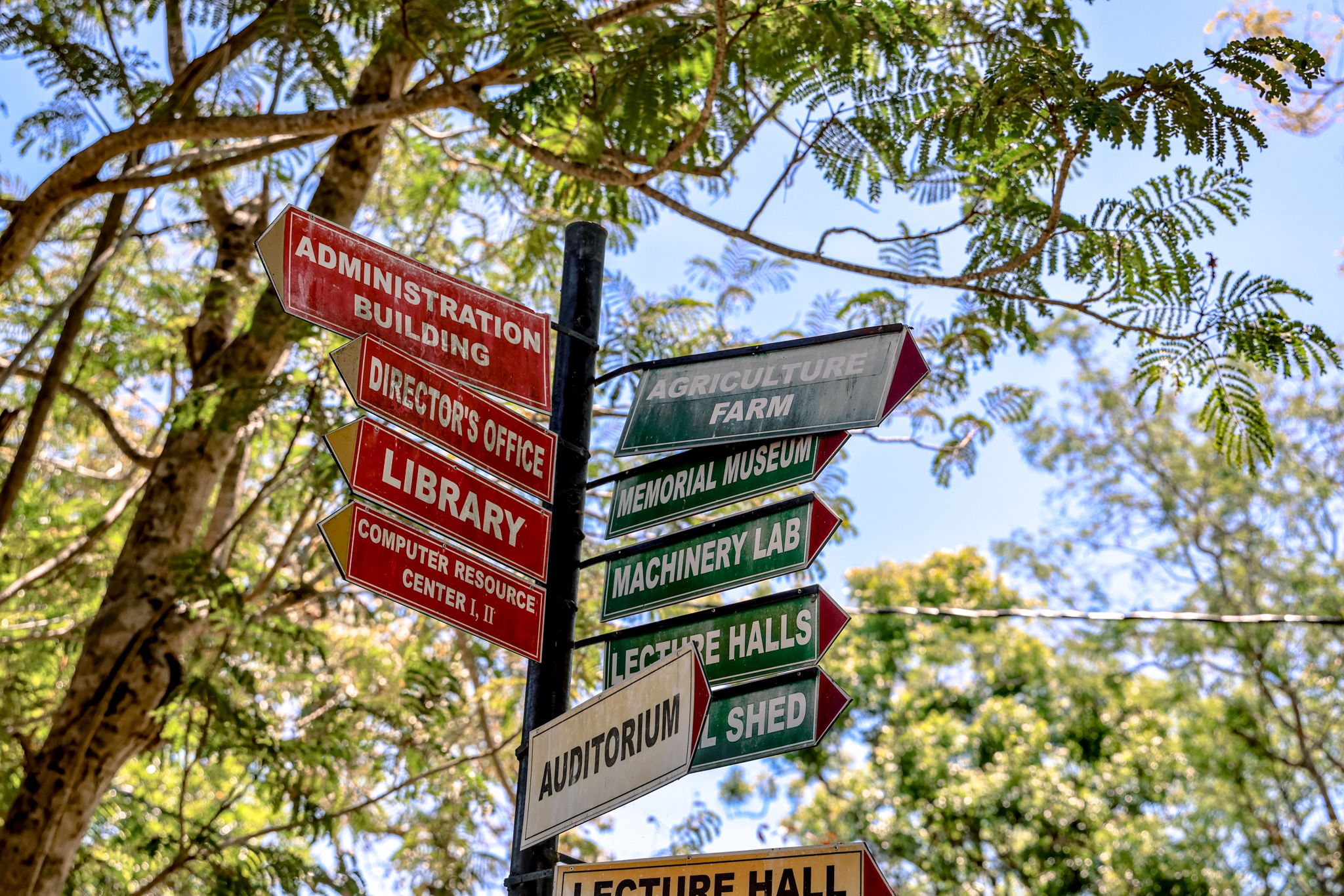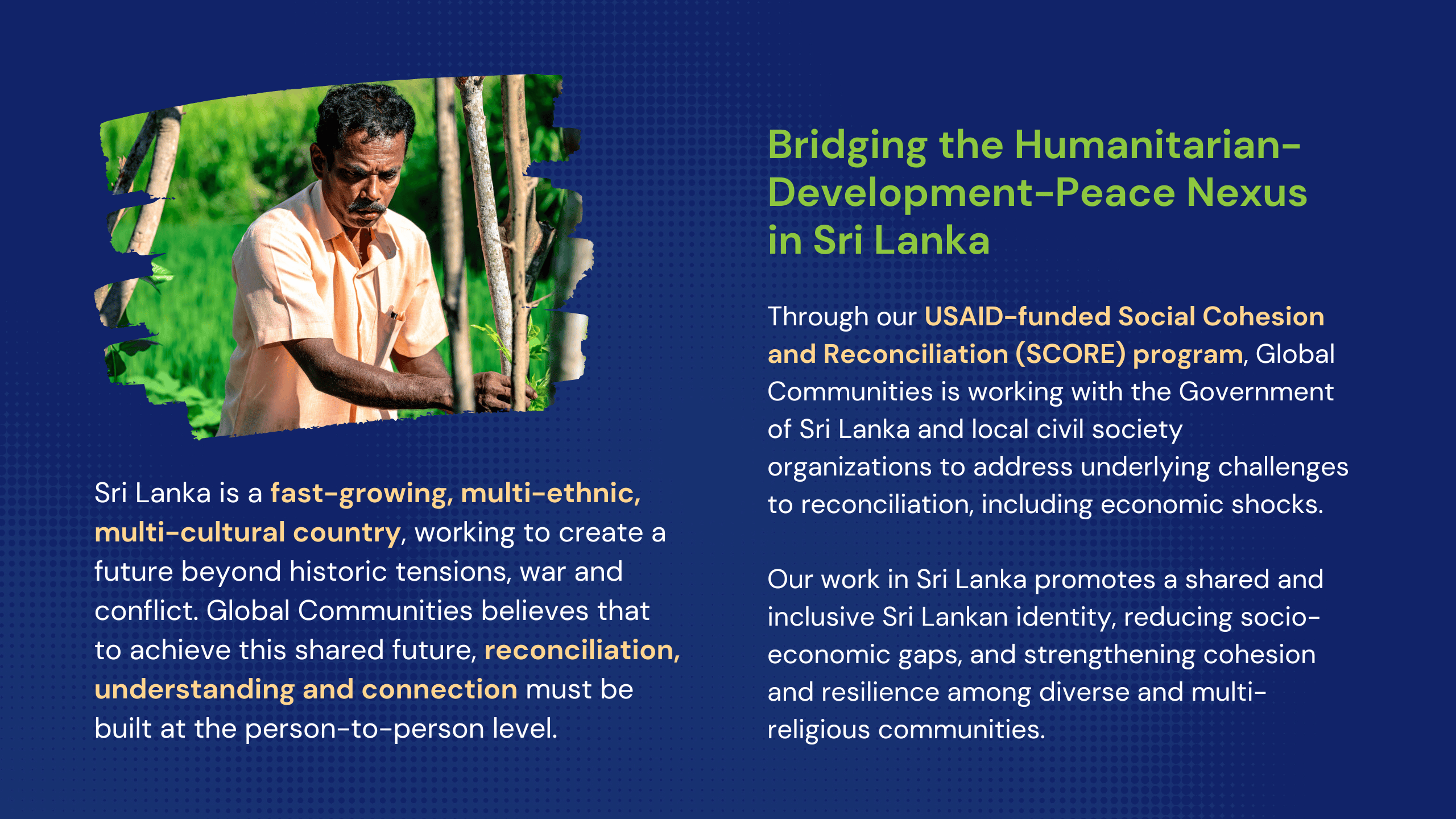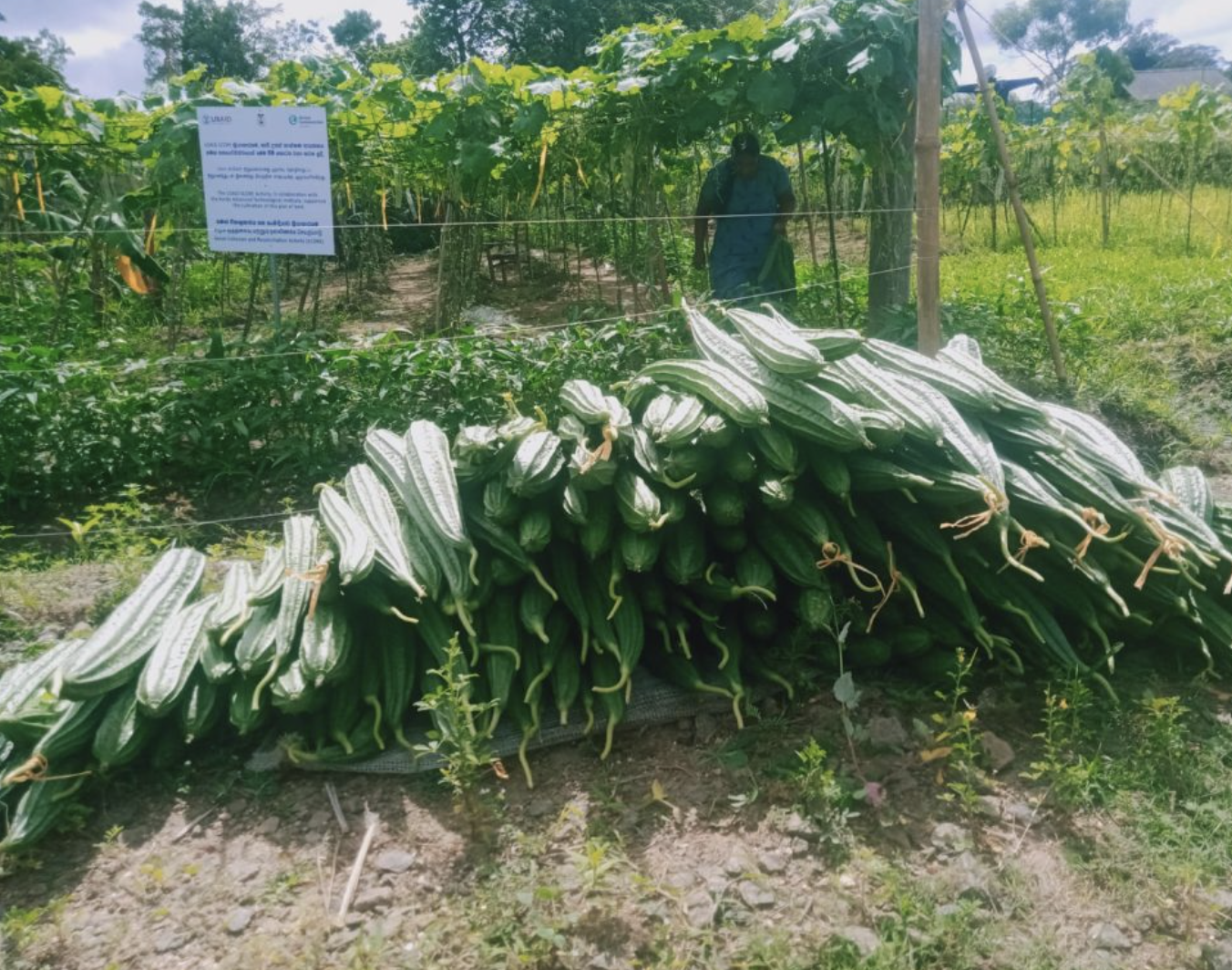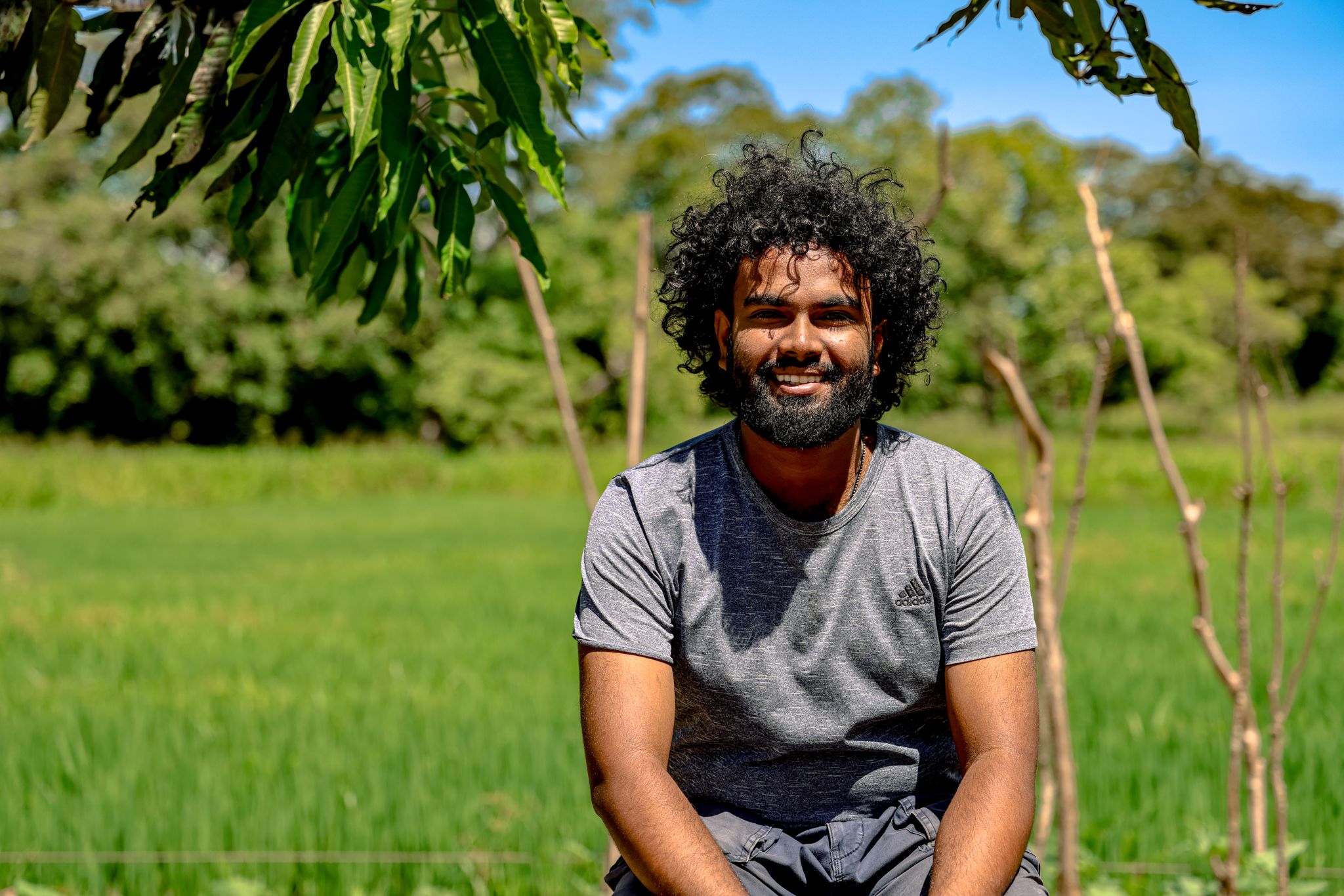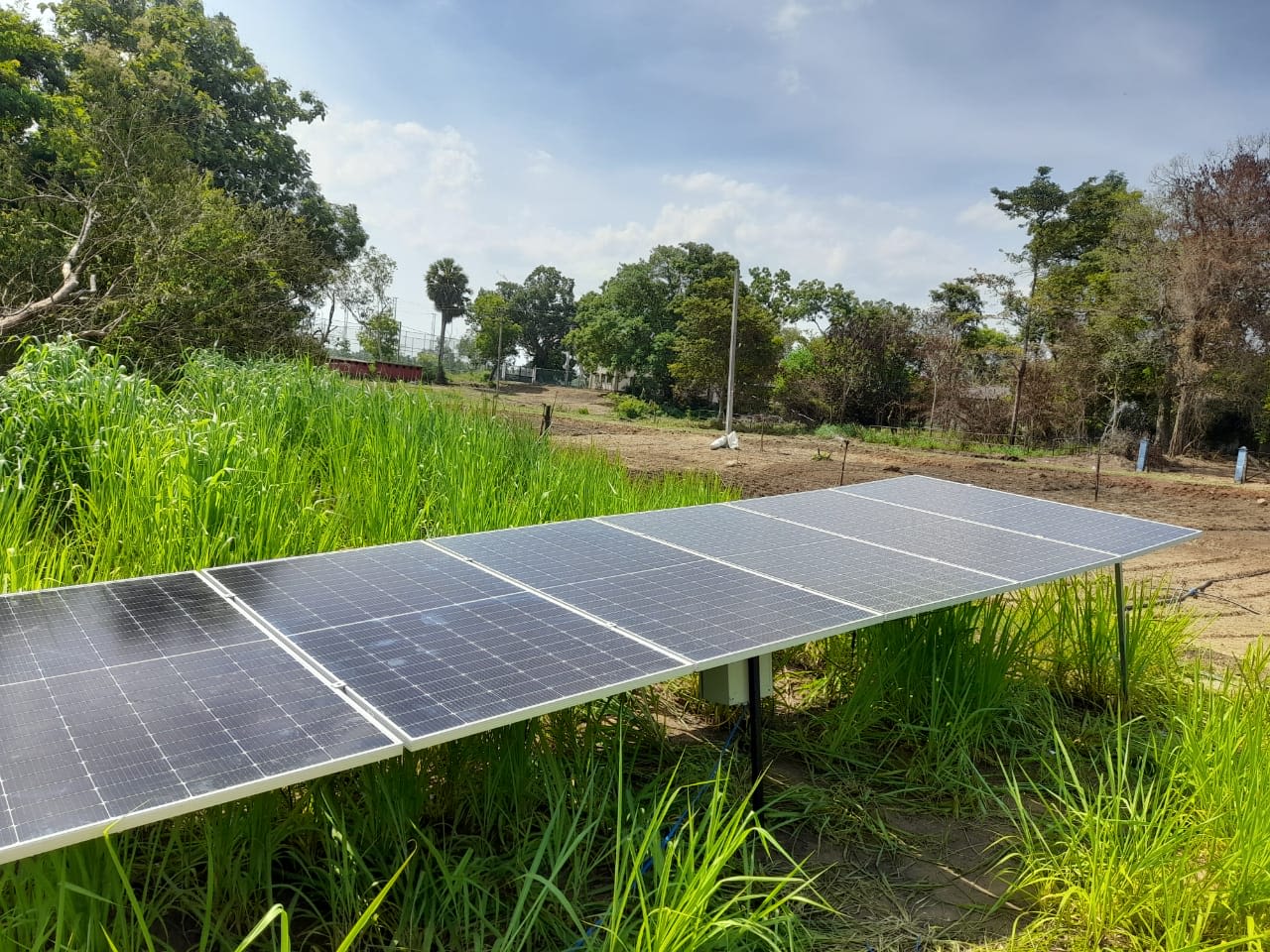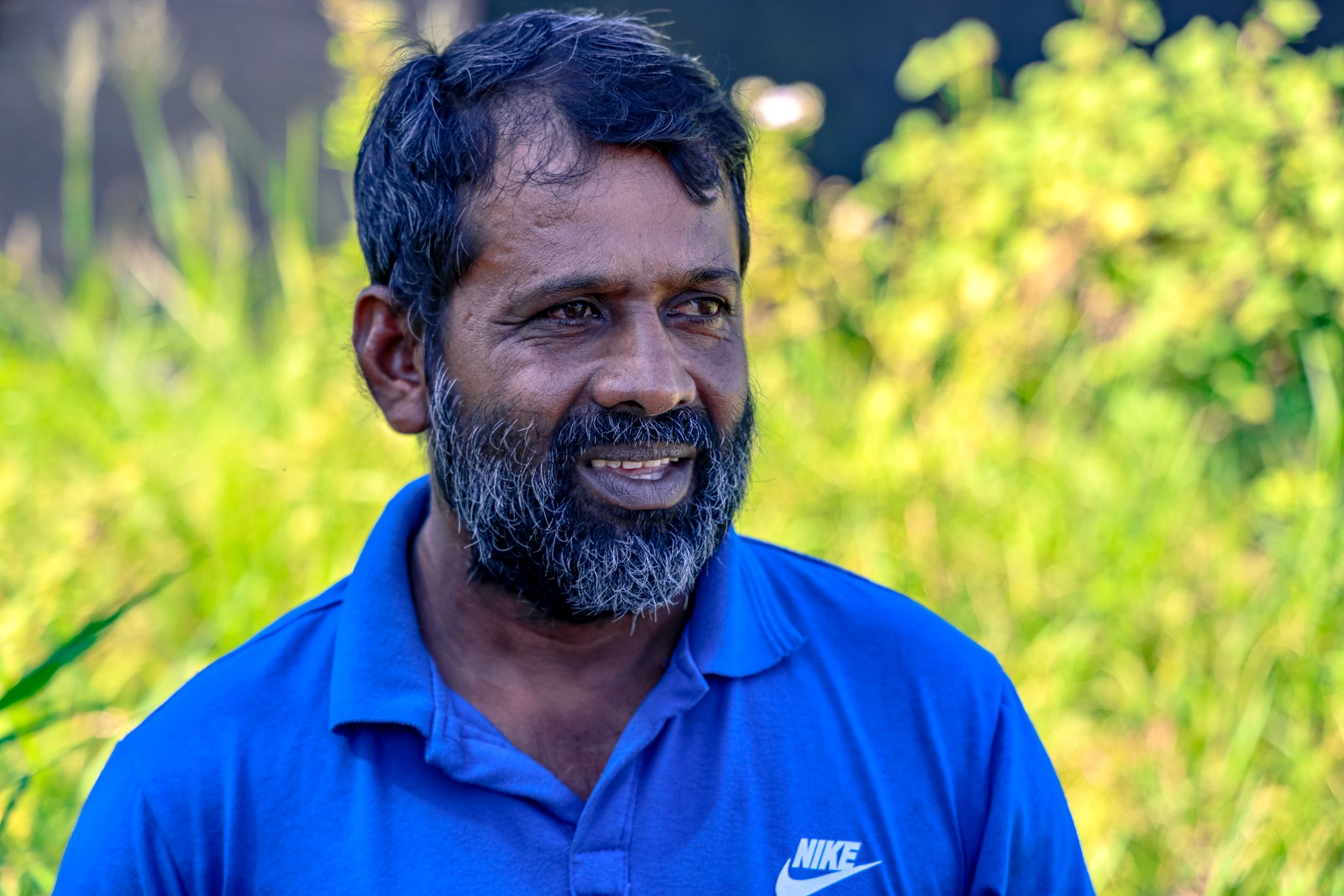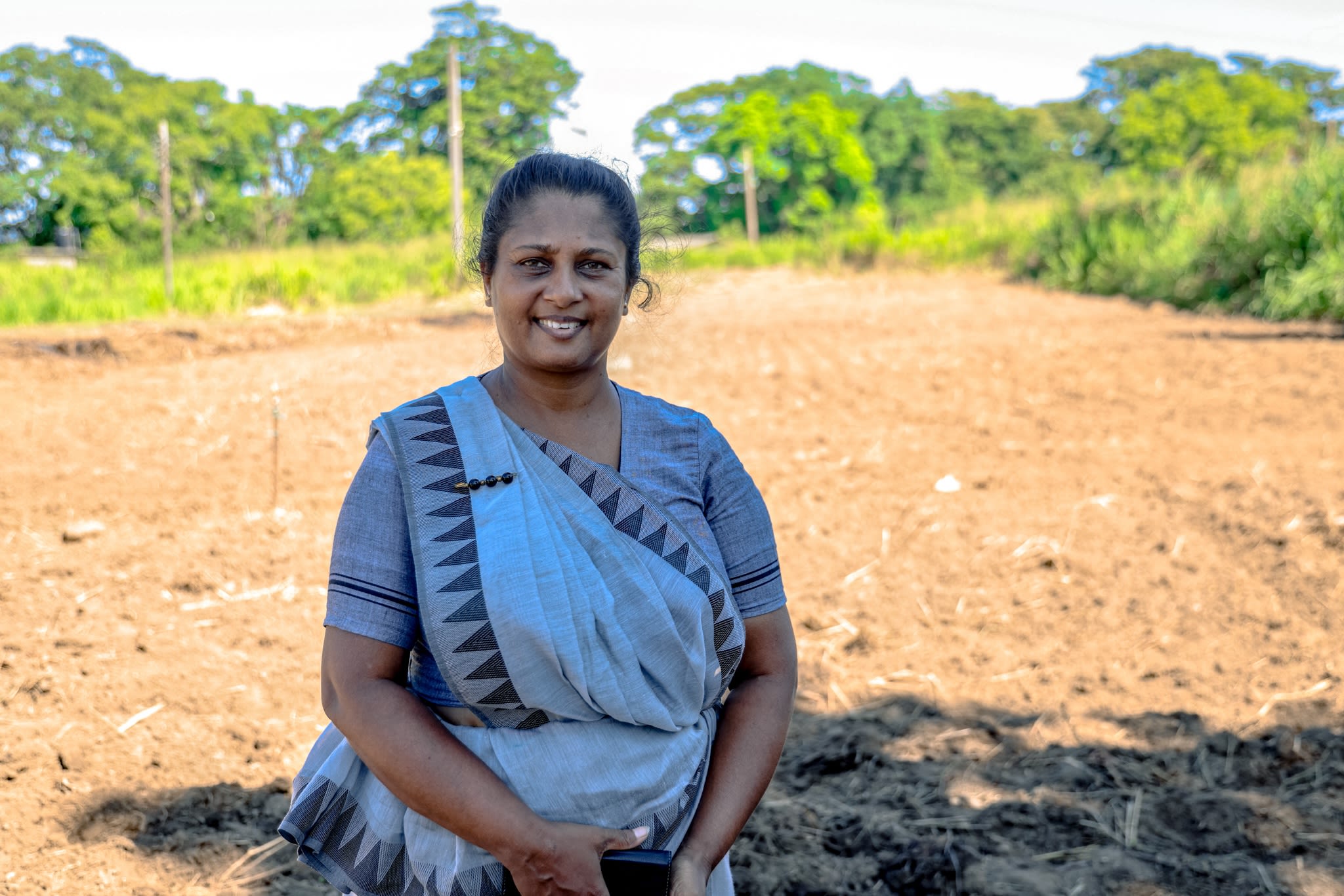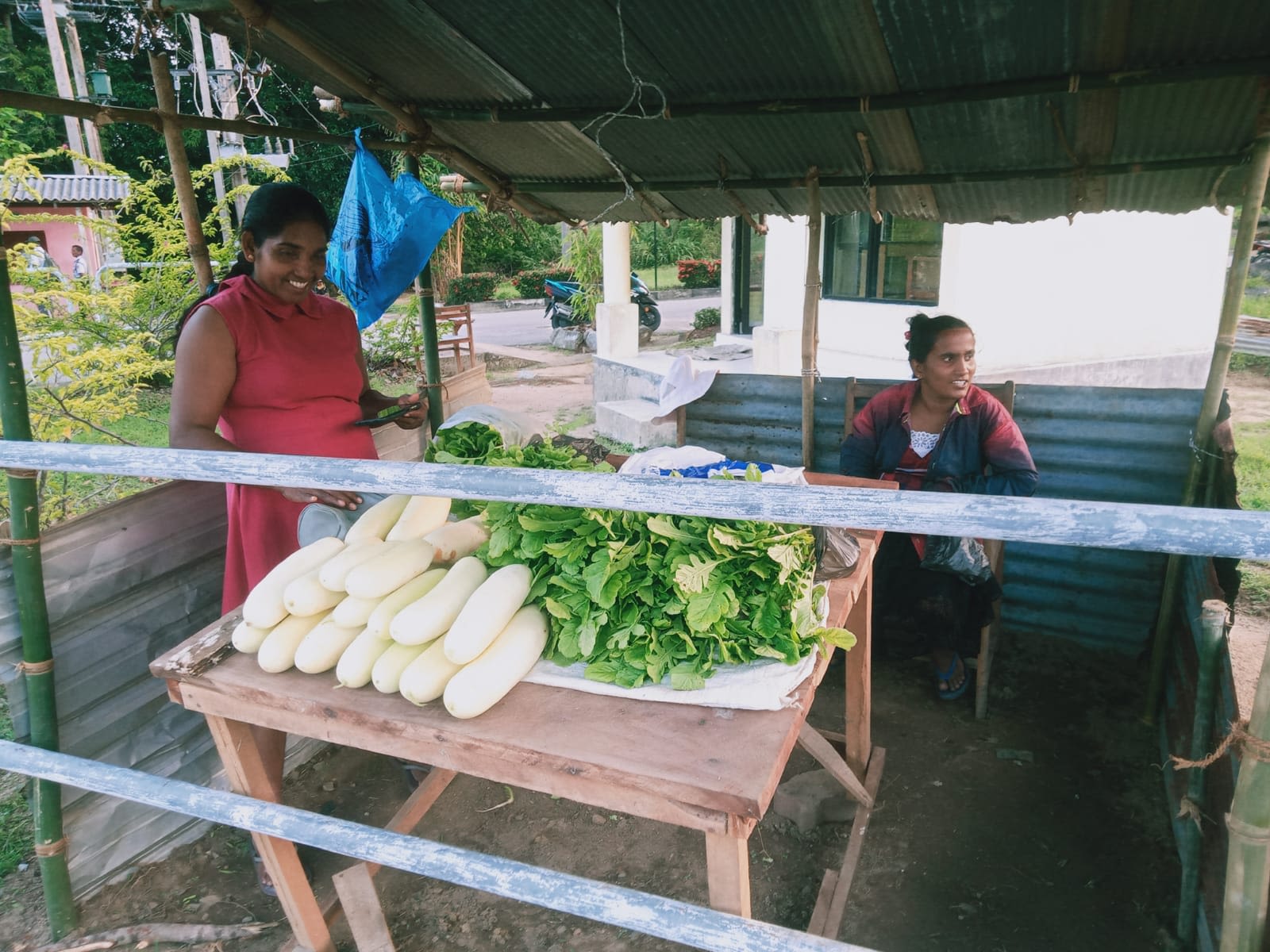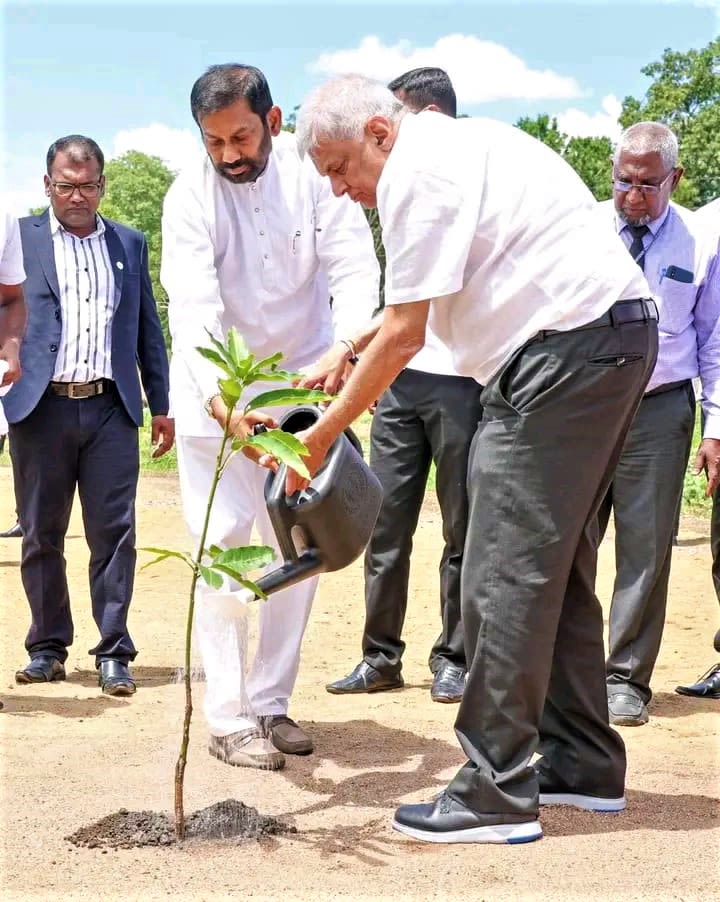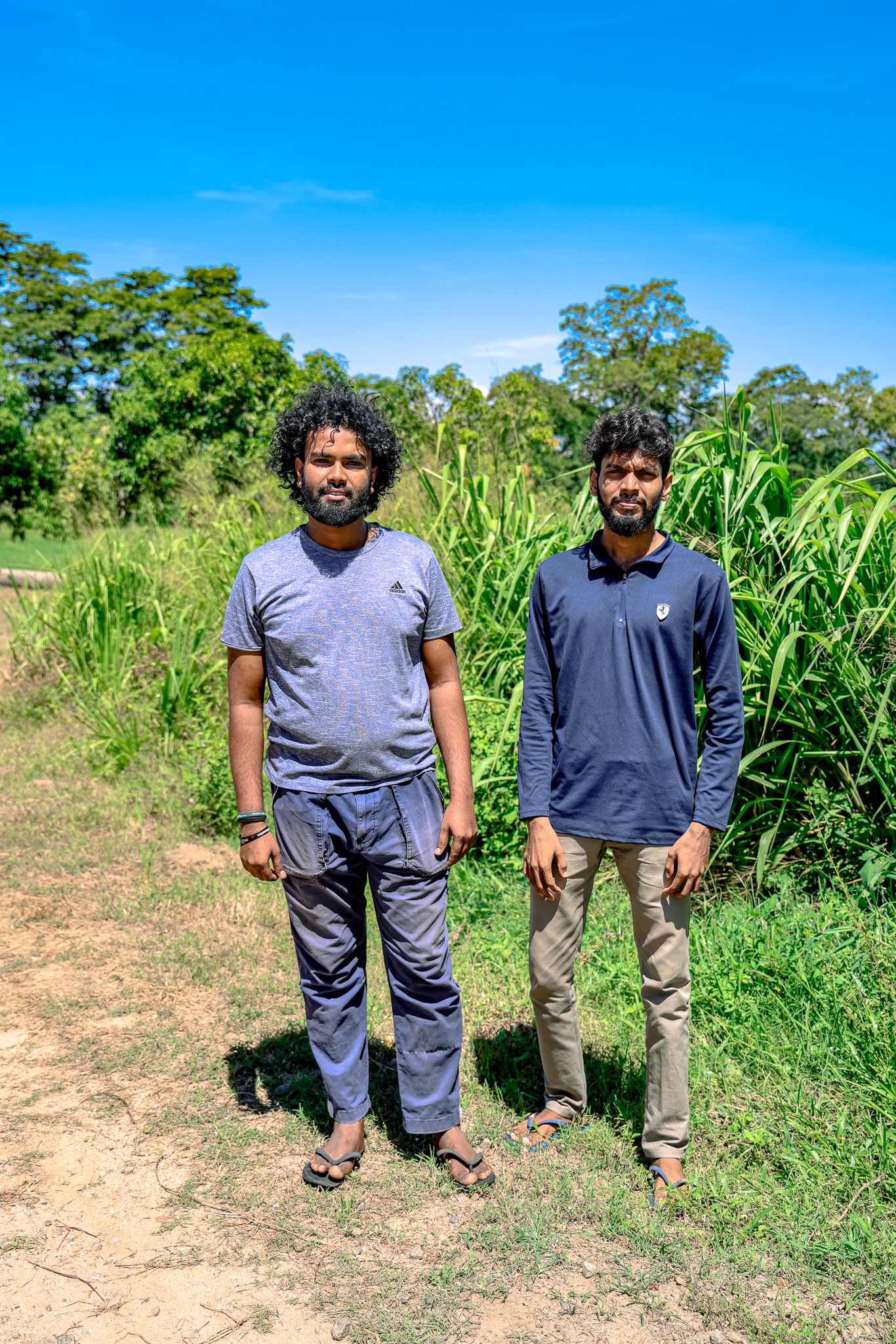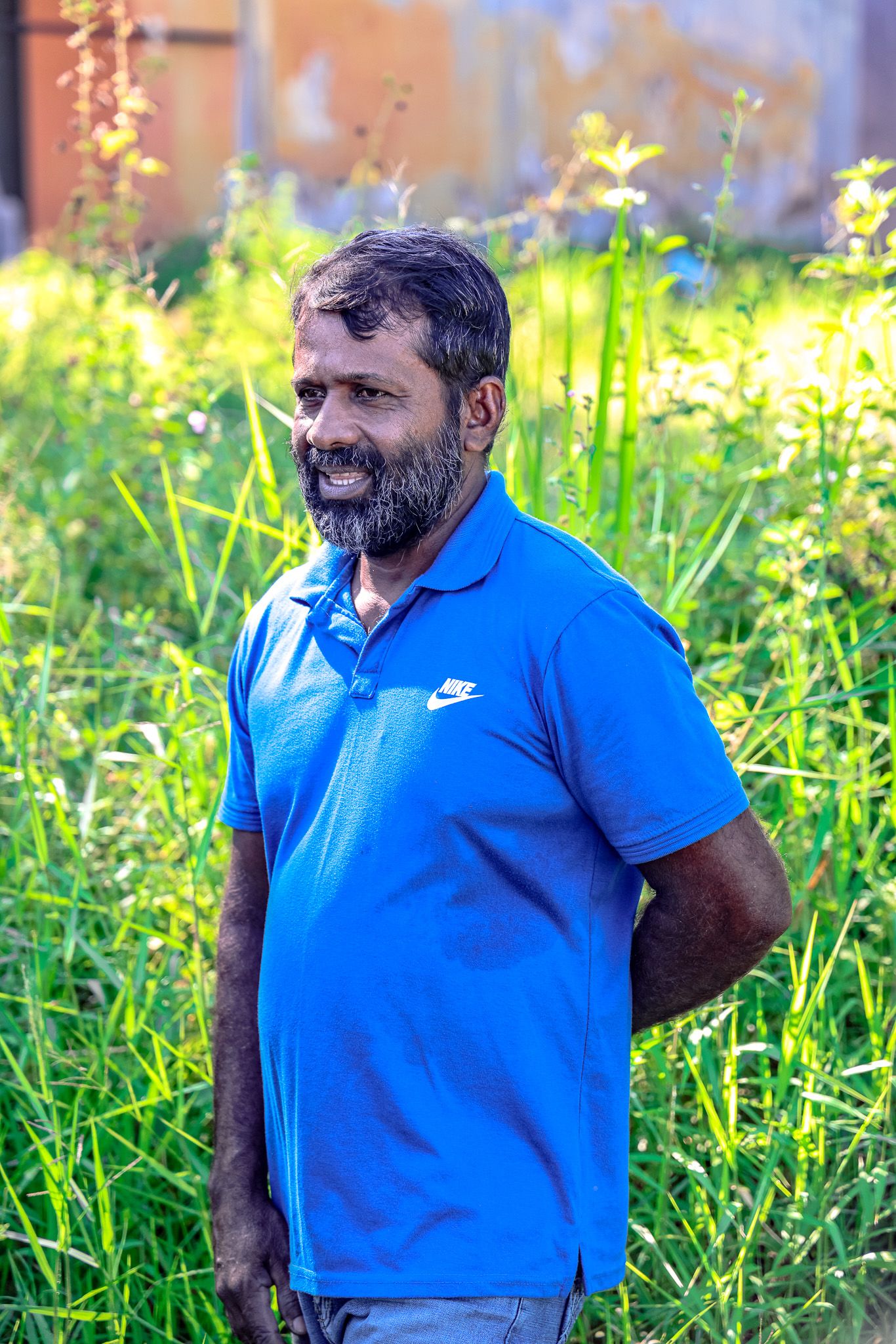Breaking New Ground
with Hardy Advanced Technological Institute
Supporting Food Security and Strengthening Economic Resilience in Sri Lanka
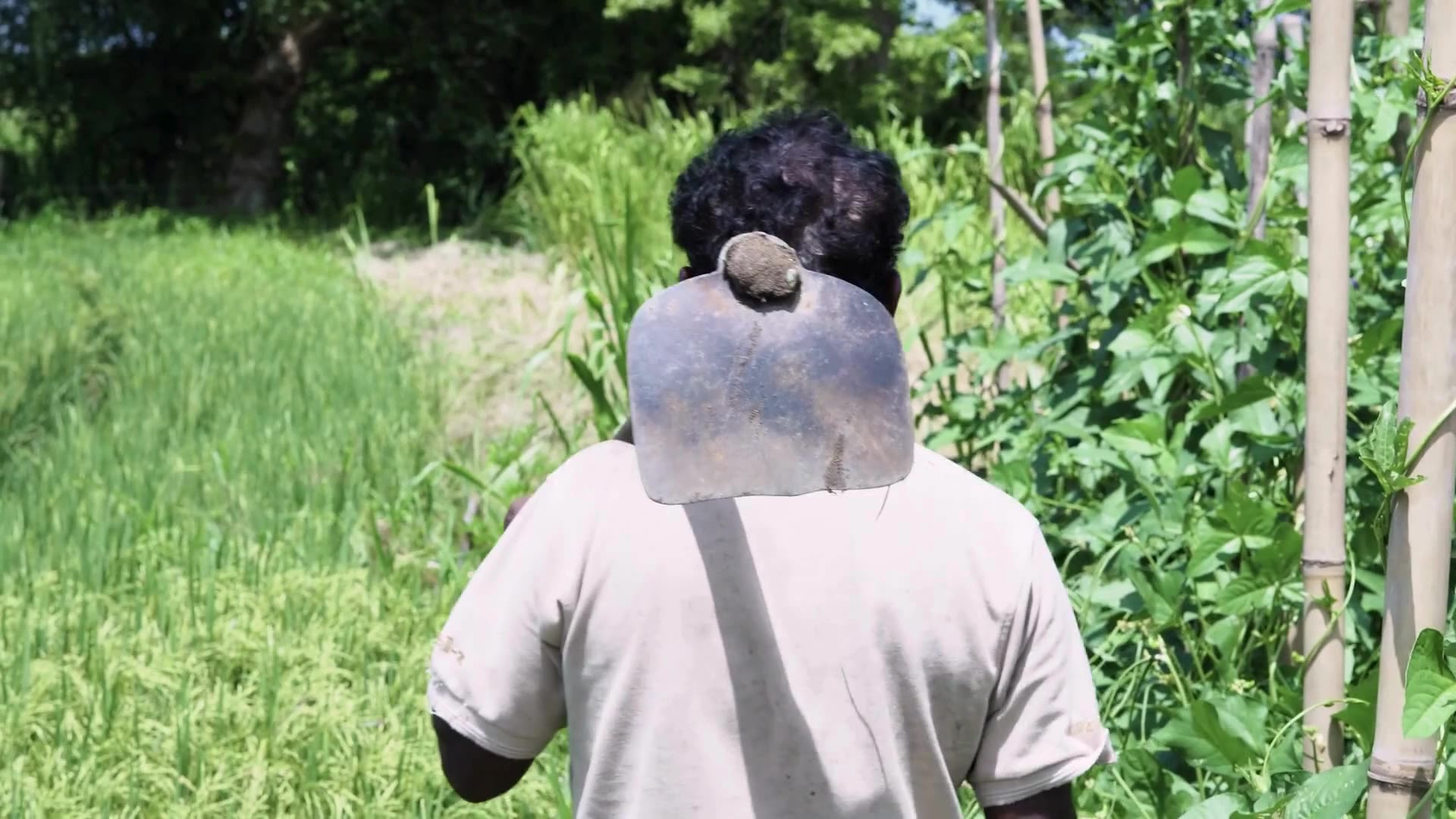
For years, acres of land ripe for growing crops sat unused next to the Hardy Advanced Technological Institute (Hardy Institute) in Sri Lanka’s Ampara District.
Although the college offers a robust agricultural program, students lacked opportunities to gain practical experience outside the classroom.
We didn’t have the human resources or financial resources to cultivate the land."
At the time, in early 2022, businesses, institutions and individuals across the country were experiencing the peak of what would become Sri Lanka’s worst economic crisis in history. Prices for basic goods had skyrocketed and essential items such as fuel, medicine and food were scarce. As a result, communities at the margins still reeling from the effects of COVID-19 were facing even more precarious and devastating circumstances.
By that time, daily work was not even available,” said Nimal, a father of two who lost his job as a day laborer and driver. “We felt a heavy financial burden. … There was no diesel for a tractor to till the land. There were no pesticides or fertilizer to be bought.”
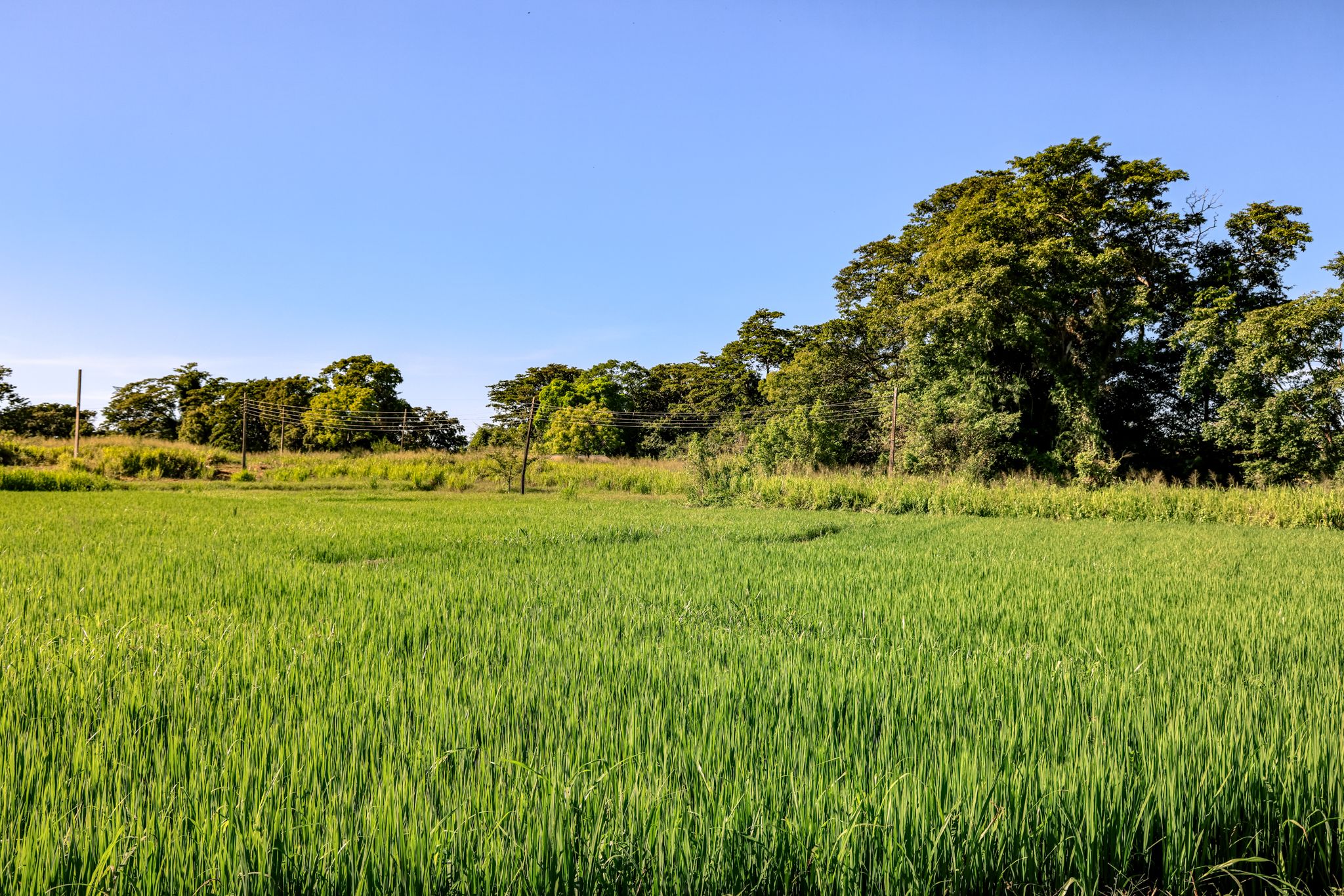
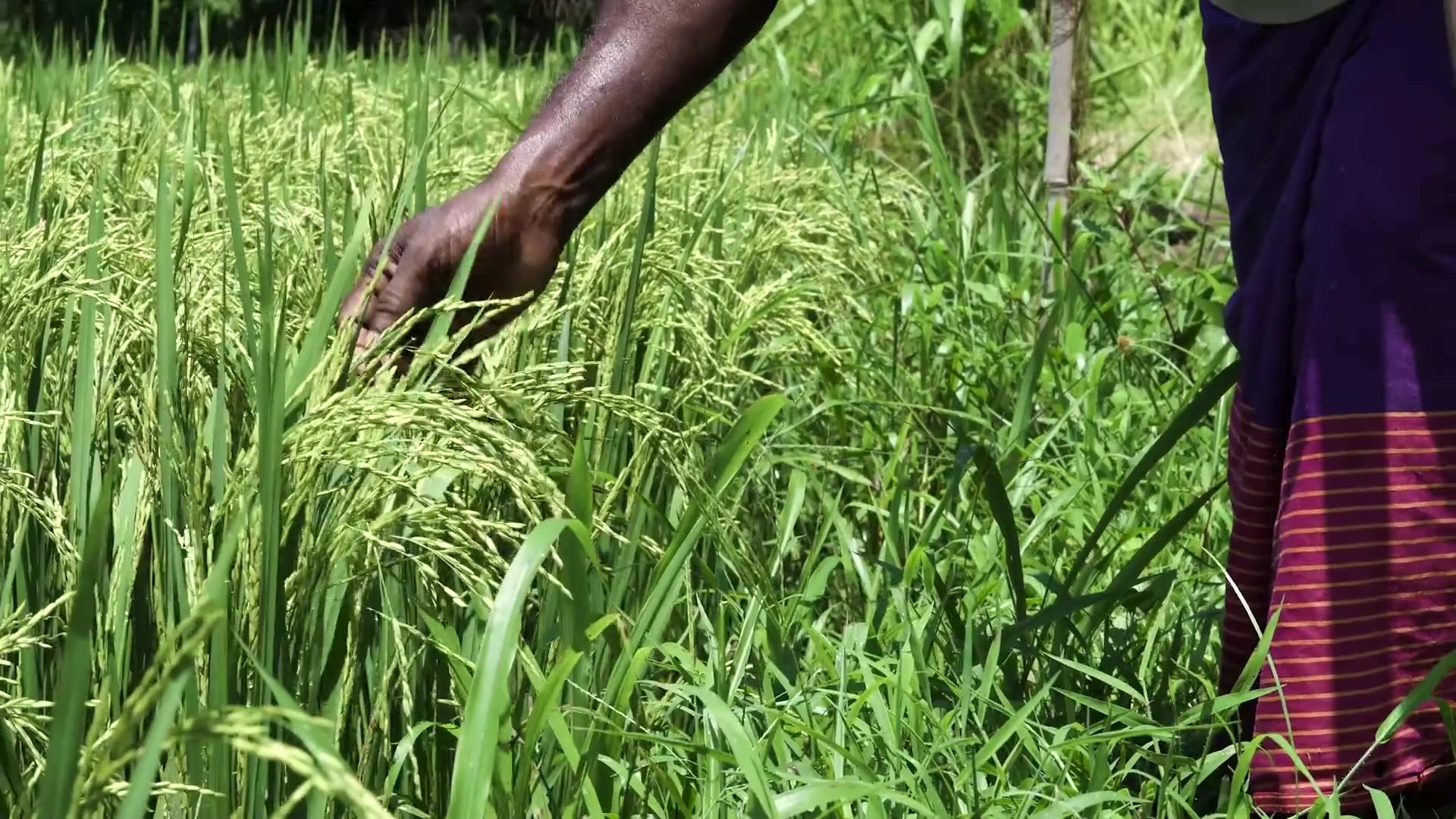
To help meet emerging and urgent needs, Global Communities adapted part of its work under the United States Agency for International Development (USAID)-funded Social Cohesion and Reconciliation (SCORE) program to pilot an agricultural project with the Hardy Institute.
Working with local leaders, government authorities and SCORE, the school made plans to transform 7.5 acres of its unutilized land into a training ground for small-scale cultivation.
I needed to take this agricultural program to the next level with a practical component that is now a model for the country,” said B. Gajasinghe, Director of the Hardy Institute. “Support from SCORE enabled this. We were really surprised to see how enthusiastically the community, staff and the students all worked together.”
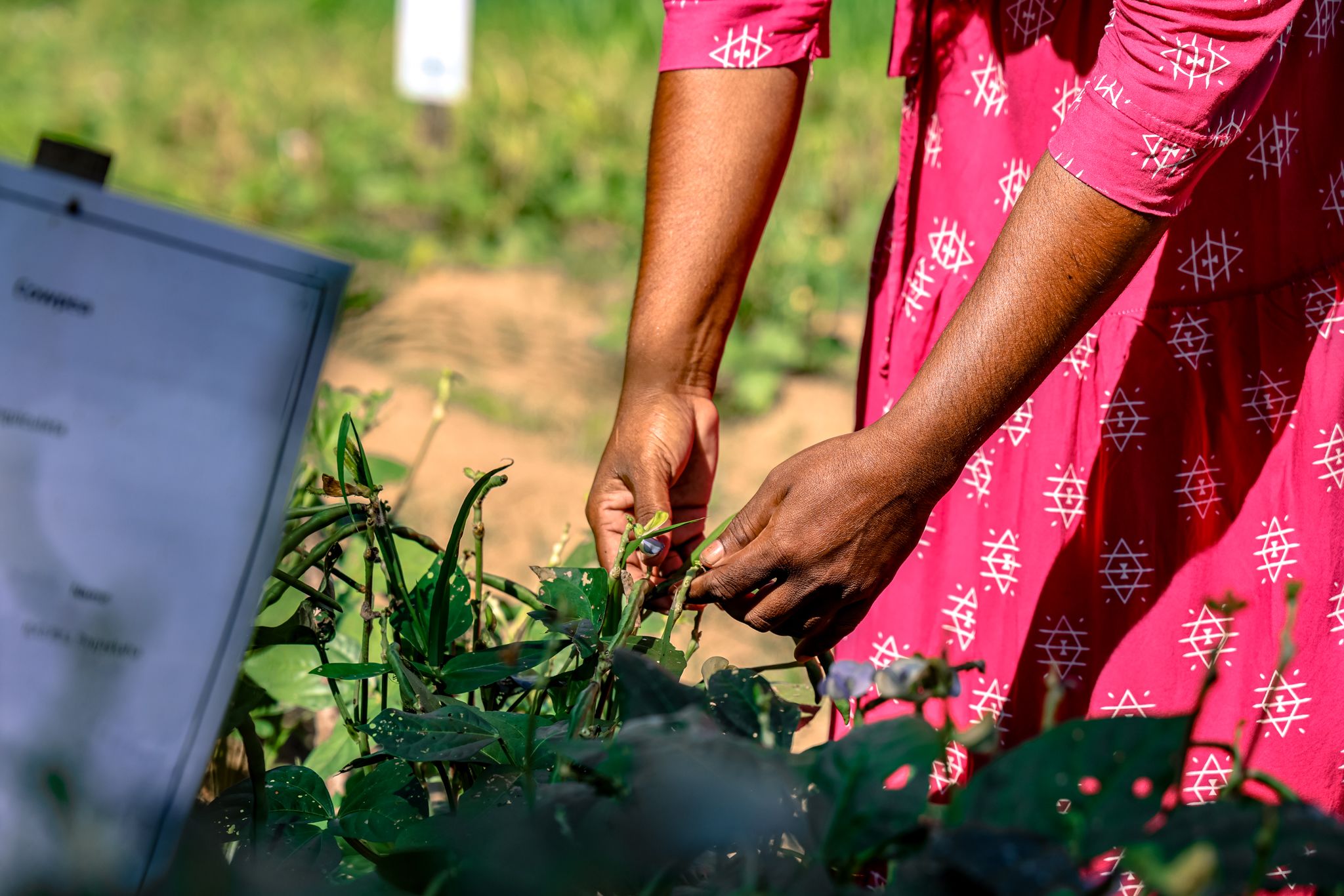

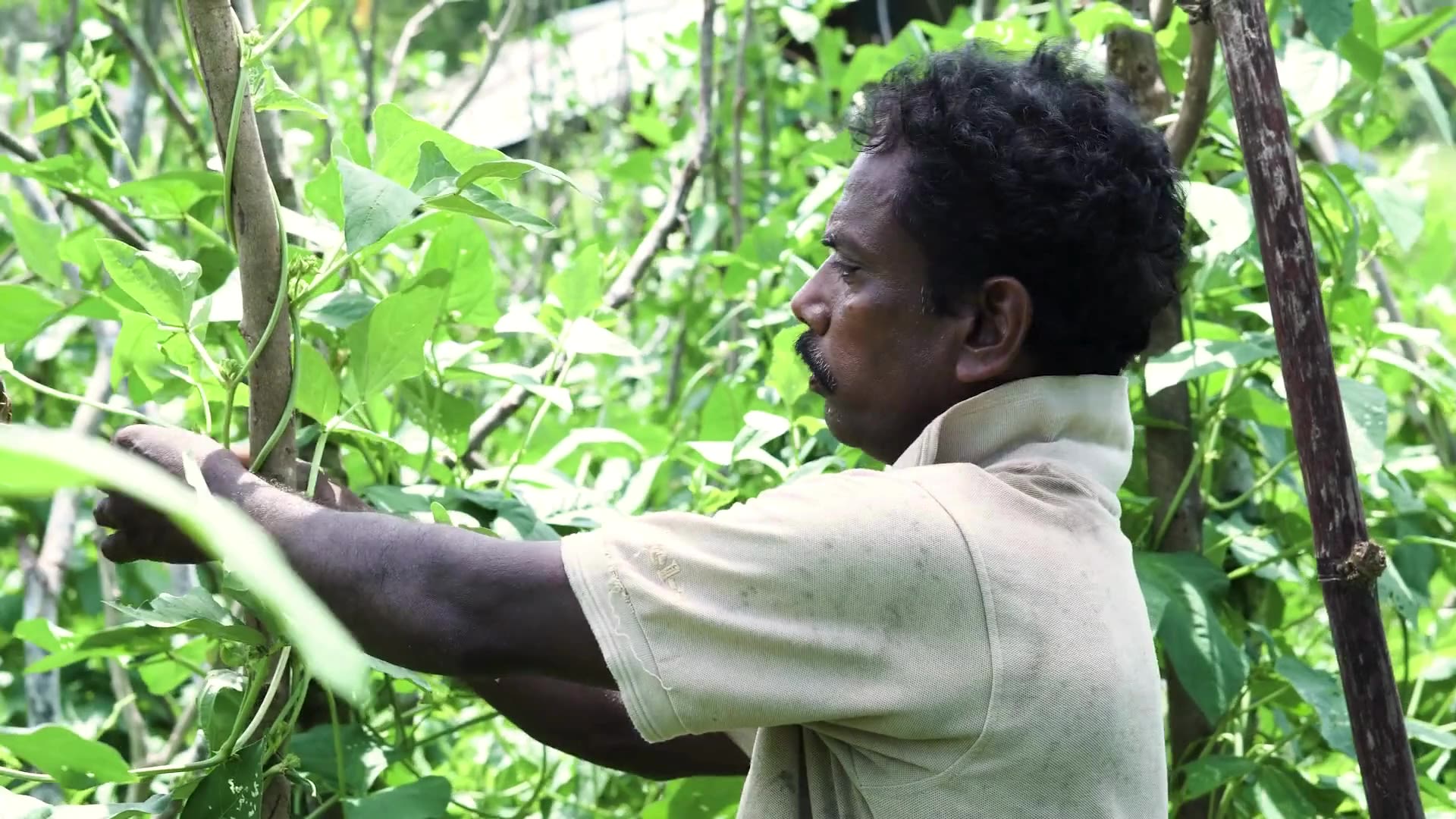
To help provide immediate economic relief for families in the grip of poverty and improve food security in the area, the project partnered agriculture students with 30 locals who had recently lost their jobs and wanted to gain formal farming experience.
“I am used to hard labor, so I was ready for anything,” said Nimal, who was among those selected from Saddhatissapura and Indrasarapura – two marginalized communities with high poverty rates near the university.
In addition to receiving cash for work to clear the land and prepare the soil for planting, each participant was assigned a quarter acre plot to learn how to farm with technical assistance and supervisory support from Hardy Institute students. As agricultural extension agents in training, 120 students were divided up among the participants to provide guidance on cash crops best suited for the land, the use of organic fertilizers and other farming technologies.
I felt proud to be a part of this project because I had not had this kind of experience before, especially the practical component of setting up an irrigation system and working with people from the community,” said Maduranga Bandara, an agriculture student in his second year at the Hardy Institute. “This project also helped expand their experience, so they can take [farming] up as a business to support their families.”
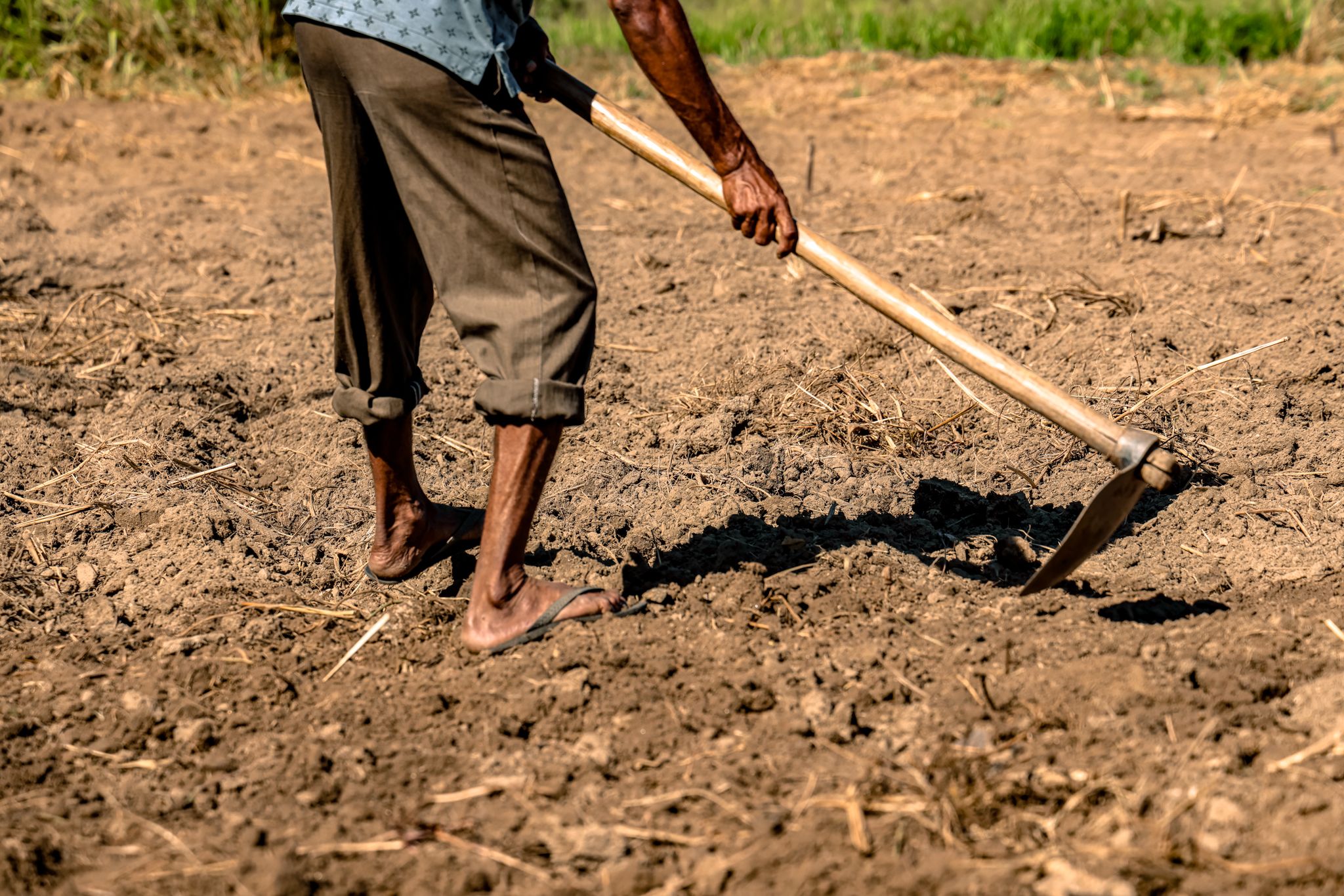

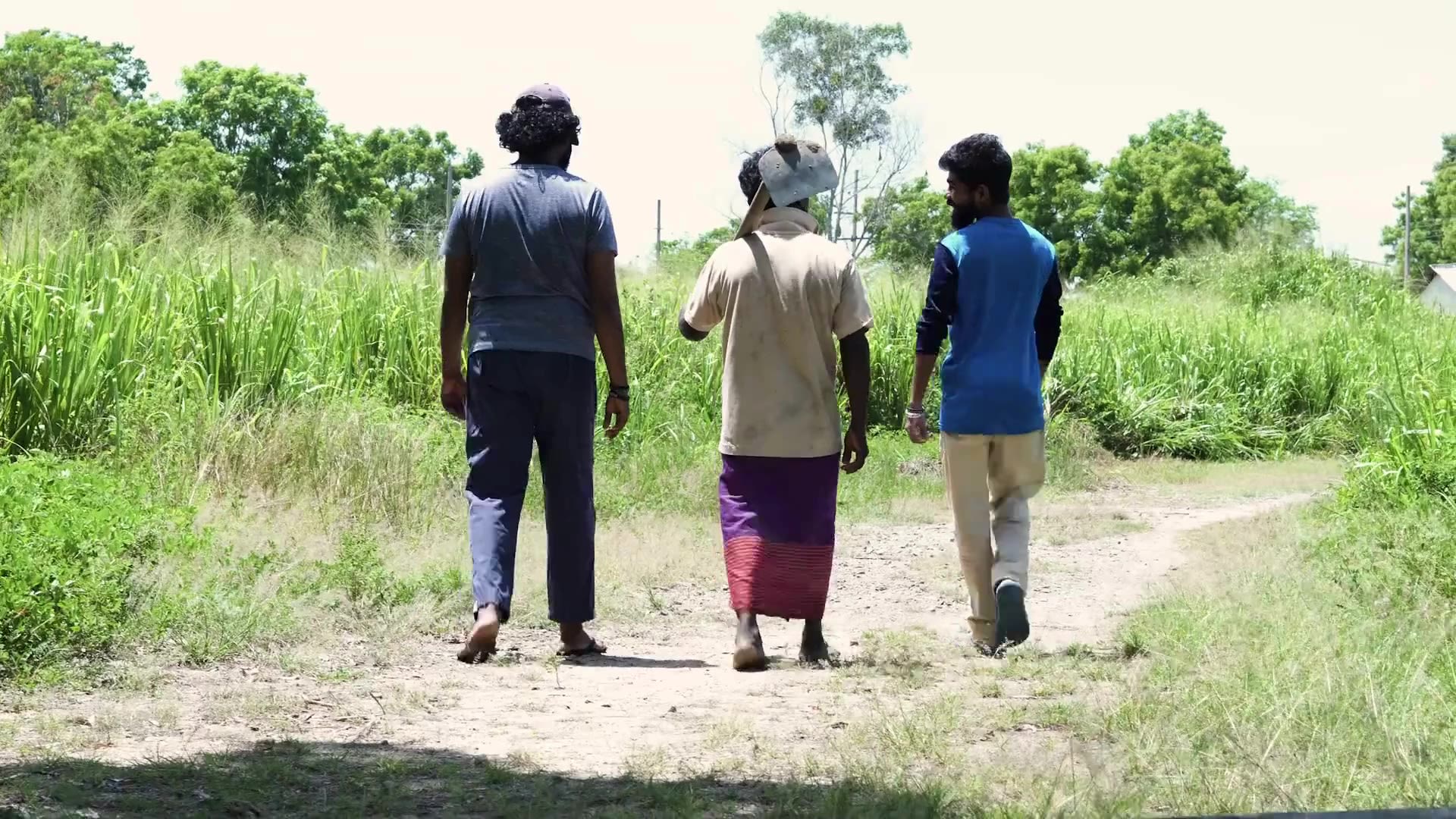
Sandya is a garment worker who ran a small sewing business from home that was forced to close when the COVID-19 pandemic hit. As the economic crisis peaked in 2022, things only got worse for her family.
We had taken out loans by this time, and we could not pay back loans,” said the mother of three. “Sending our children to school, money to pay for their classes, we could not do any of that. Actually, it was a financial situation where we could not even eat. … There was nothing to be done. That is when we got this project.”
Although Sandya had some experience working in her home garden, she said the training she received from the Hardy Institute boosted her confidence and equipped her with knowledge that will help her pursue farming with a greater sense of security in the future.
When we do this again, I think we can do it even better and more efficiently because of what we learned,” Sandya said. “At home, it was done quite informally, but here we learned the techniques and the timing.”
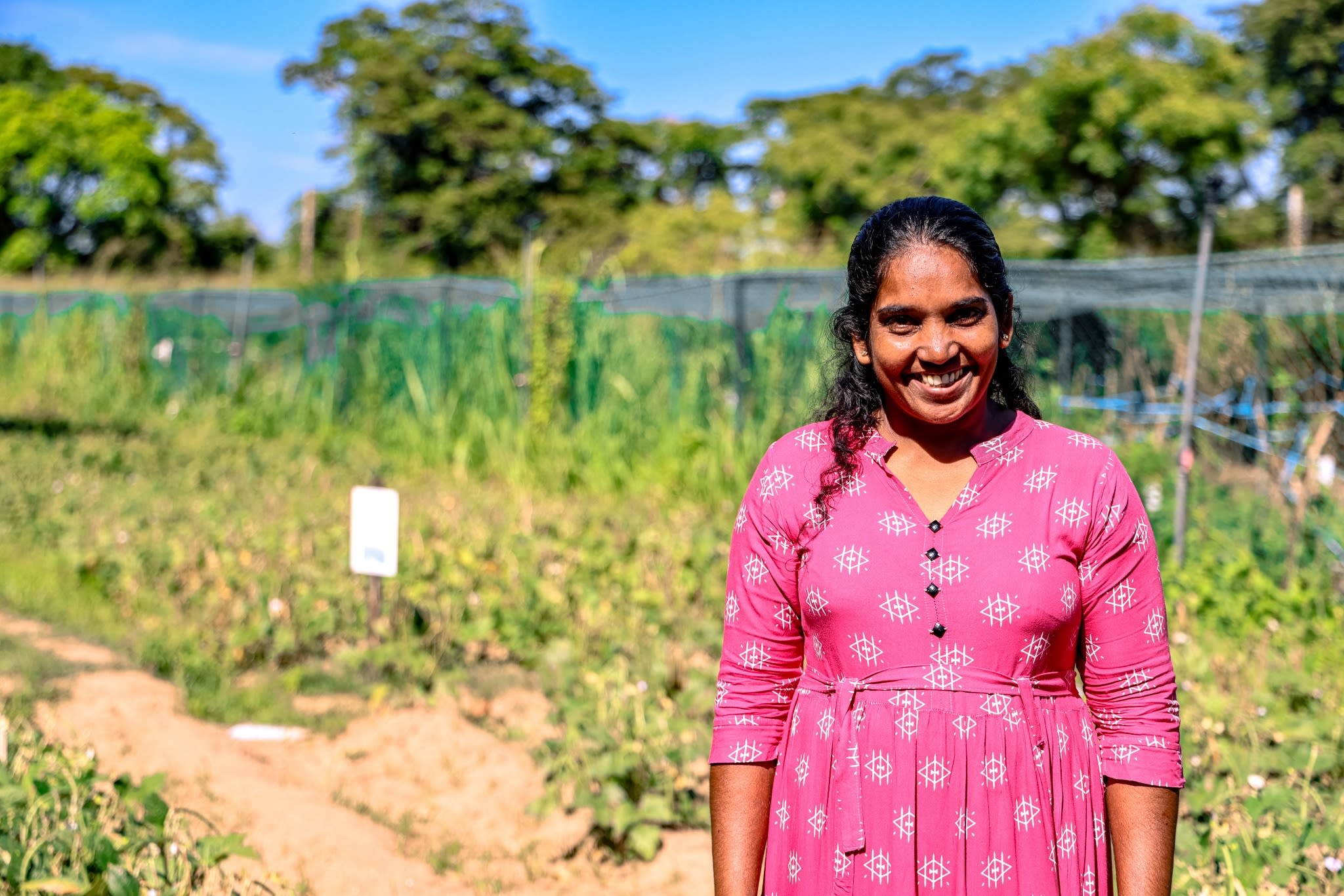
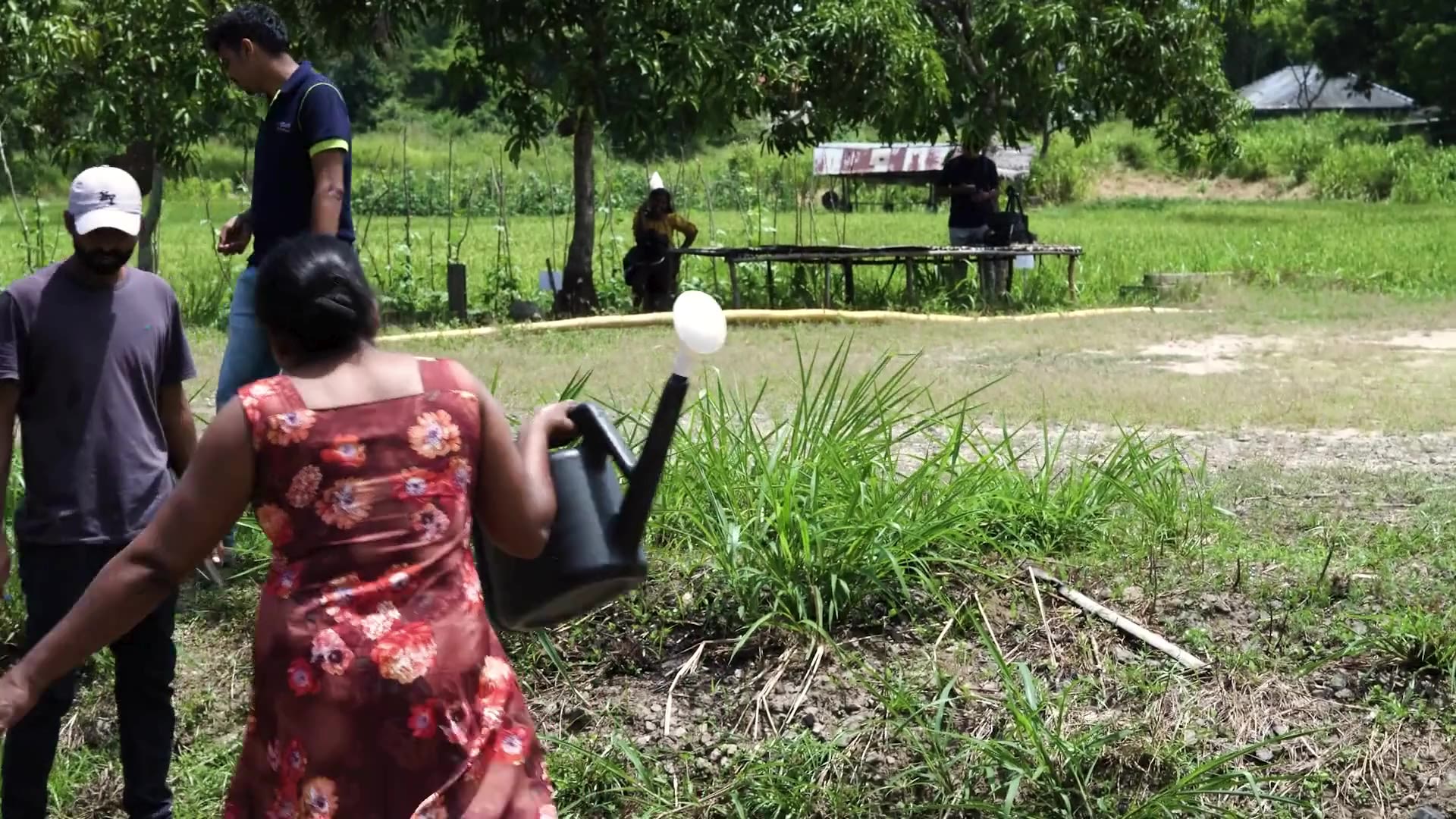
Beyond cash for work, as part of the arrangement with the university, participants also received two-thirds of the income they made selling crops that were harvested.
The rest of the profits went to the Hardy Institute, which placed the money in a farm account for the school to continue using the land productively. Based on technical input from the university, SCORE also set up a solar-powered irrigation system to support year-round cultivation, moving them away from dependence on rainfall and significantly reducing production costs associated with water.
Earlier we had a challenge with irrigation because of the hot temperatures,” said Nandani Watagodakumubura, the agriculture department’s senior lecturer. “… With solar power, we can face that challenge now.”
Alahakoon, 50, was a welder before the economic crisis. The father of two said that losing his job took a major toll on his mental health. No one was willing to give him a loan, and he struggled to meet the basic needs of his family.
Now, I am very happy because I can earn an income and have confidence,” he said, noting how the Hardy Institute students worked alongside him every day to ensure he had a successful first harvest. “I came here not knowing anything about farming, but they were so supportive in helping me learn and grow.”
According to Nandani, the project was just as educational for her students and the university – laying the groundwork for future collaboration and innovation.
The community and [Hardy] didn’t really have a relationship before the program. We operated as separate entities, but this has been mutually beneficial,” she said. “It will be helpful for our students in the future as professionals, because now they have learned the culture. … It has improved their skills, knowledge and attitudes toward agriculture development and how to work with this kind of community.”
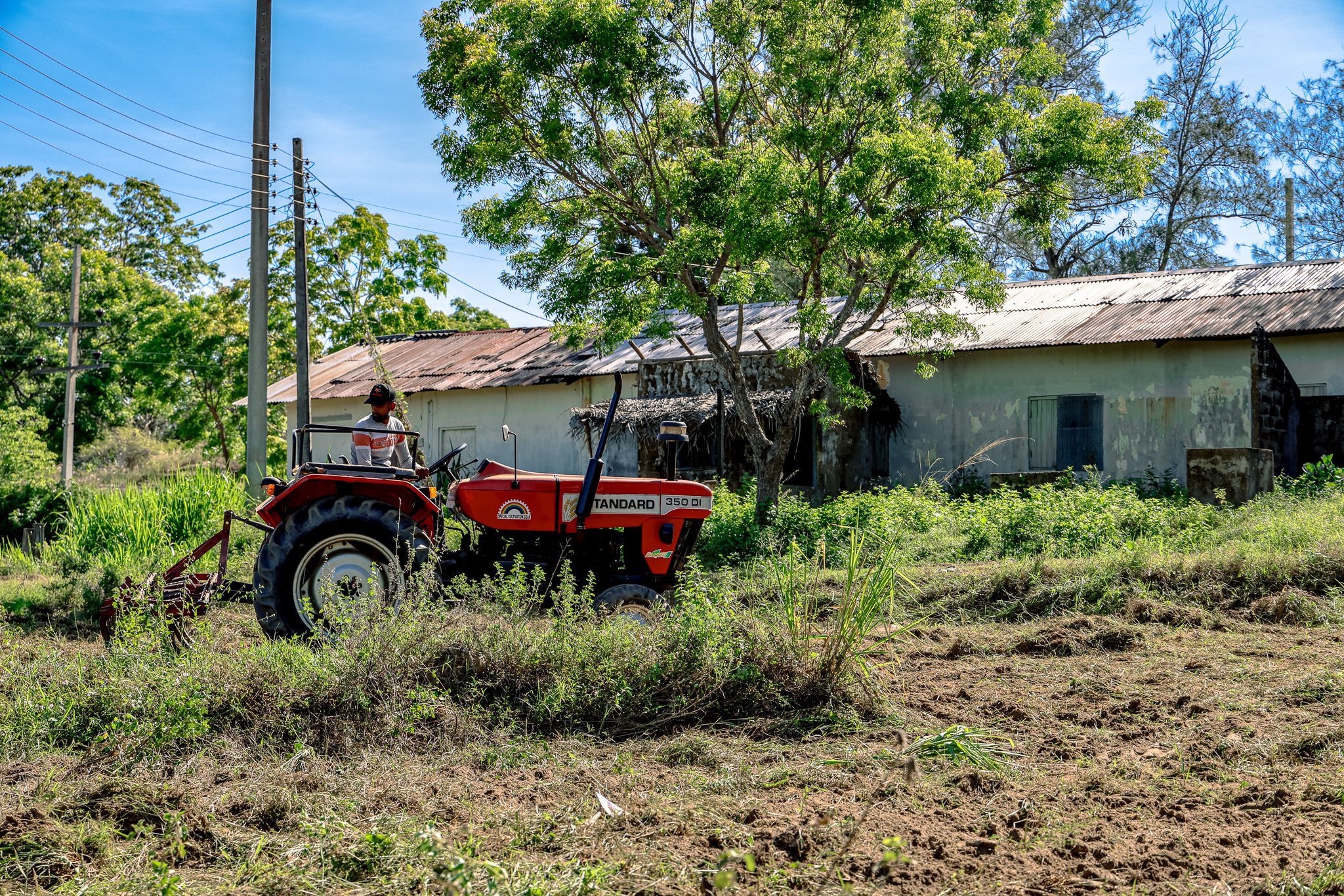

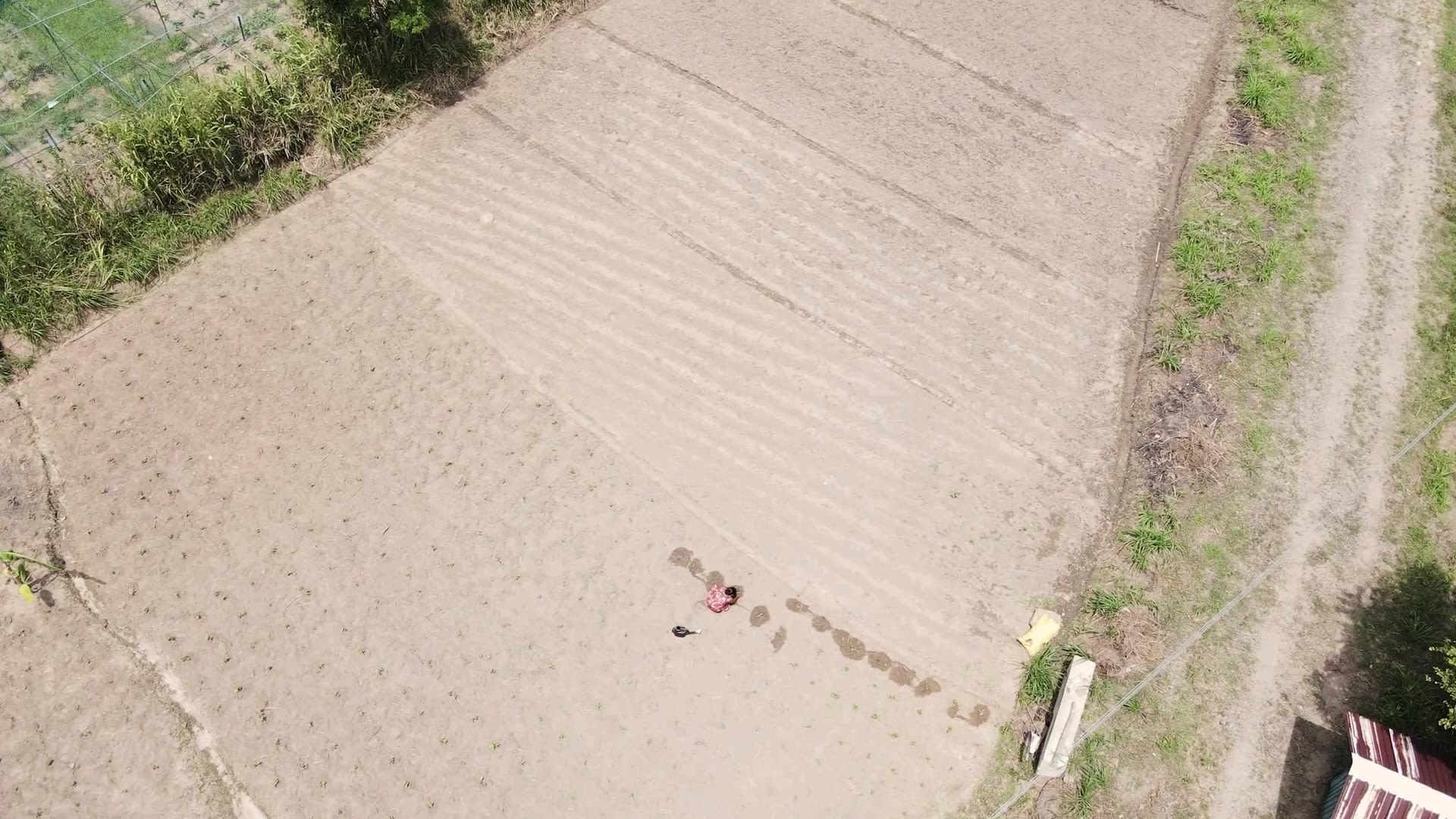
All told, the pilot project took place over four months, or one season. However, following the end of the SCORE grant, the Hardy Institute continued to work with 8 of the original 30 participants and let them cultivate the land for a second season.
This was a huge helping hand for us to come forward from the fallen economic situation,” said Nimal, who used the profits from his first harvest to purchase equipment for his children to continue studying virtually during the pandemic. “… I cannot express the value of this.”
Toward the end of 2023, following the second harvesting season, severe flooding in Ampara District prevented community members from re-cultivating the land. However, thanks to the farm account the university established during the pilot, repairs have been underway to clean up the damage and continue the collaboration between students and local farmers.
Sandya, who – like Nimal – was also part of the second harvesting season, speaks to the resilience cultivated by all who had a hand in setting up the model farm.
After coming to this project, my life moved forward from where it was. Before coming, I was heavily in debt, tied up in loans. I had pawned jewelry,” she said. “After coming to the project, all those problems were solved. … Whatever setbacks we faced, now I know how to deal with it.”
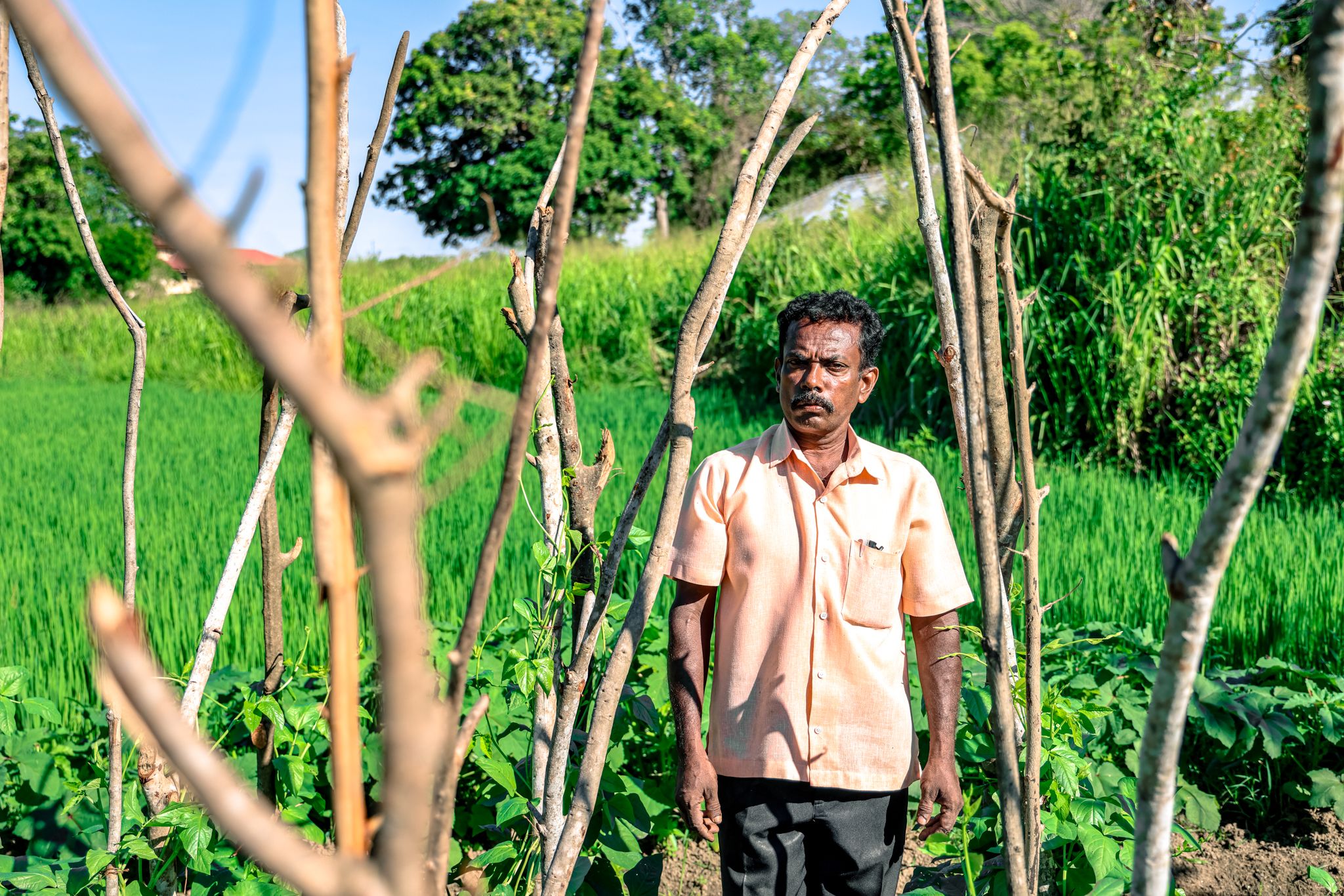
In October 2022, Sri Lankan President Ranil Wickremesinghe visited the SCORE program site and applauded it as an effective model that should be adopted and adapted across the country to promote food security.
“All of the farmers involved came from different backgrounds, but the common factor was that they all had lost employment because of the economic crisis or pandemic. They all came with the understanding that they were people who needed support,” said Maduranga Bandara, a student studying agriculture at the Hardy Institute who was part of the USAID-funded SCORE project on campus. “… We were able to gain and share knowledge. It was a mutual learning experience.”
“When I was welding, it was the same thing over and over. When I am farming, I am able to enjoy watching so many different things take place, from cultivation to final product. … I enjoy everything I am doing.”
- Alahakoon, SCORE participant

At a time when disasters and disruptions are becoming more common and catastrophic, Global Communities, together with our local partners, equips communities with the training, tools and resources they need to recover from crises and build long-term resilience in the face of constant change.
From prevention and adaptation to positive transformation, we focus on solutions that center local voices and expand opportunities for growth, leadership and advancement.



